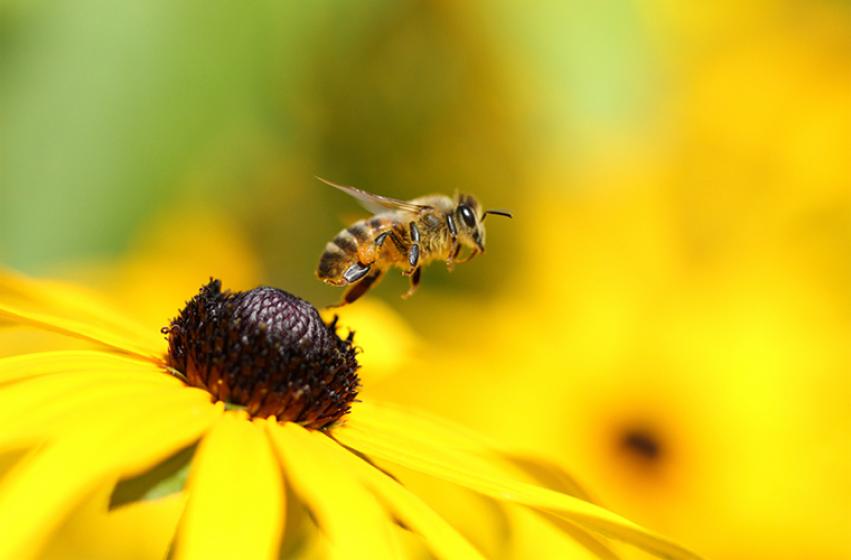National Honey Bee Day is coming up Saturday, August 15th. Let’s herald these hard-working pollinators and support local beekeepers!
You’ve probably heard 'the buzz' about the massive decline of bees in the US in recent years. President Obama has even taken a stand to help the bee maintain its buzz. This past month, he announced the first ‘National strategy to promote the health of bees and other pollinators,’ which basically means save the bees. Worldwide there is disturbing evidence that pollinating animals have suffered from a loss of habitat, chemical misuse, and a real decline in numbers. Bees, butterflies, beetles, birds and bats are some of our pollinators. Over the past year, about 40% of bee colonies have collapsed. These pollinators affect everyone! In fact, one-third of the foods we find in the grocery store result from pollinators like bees and other insects. When it comes to agriculture, bees are major pollinators. If you’ve ever eaten a blueberry, chocolate or a tomato then you owe a big thank you to a small pollinator. Some estimates put the economic value of their activities at roughly $15 billion a year! Anyone can increase the number of pollinators around - you don’t have to be a big time farmer. Just by making choices to grow plants that provide habitat for bees, butterflies, and humming birds, you are creating a safe space for pollinators and helping to stop the decline! Here’s our top picks for plants that attract bees, hummingbirds, and butterflies:
- Butterfly Weed
- Begonias
- Bellflowers
- Hostas
- Rosemary
- Verbena
- Salvia
- Yarrow
- Coneflowers
- Swamp Milkweed
- Bee Balm
- Hollyhock
- Asters
- Parsley
Join us this Sunday, August 9th, to learn more about the important role of honey bees in our backyards and our communities from 2-4pm at our Hampton location. Get the buzz here! >>

